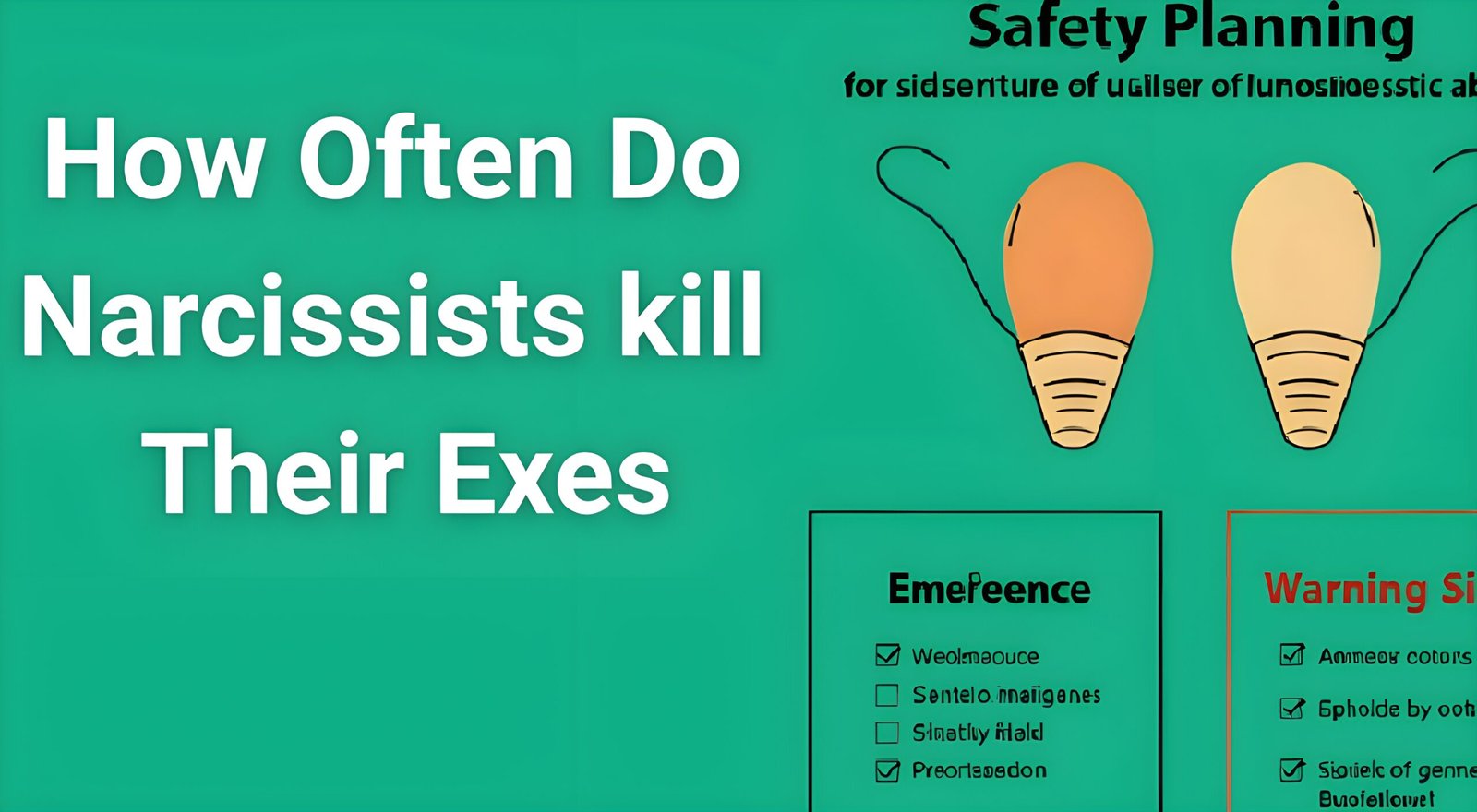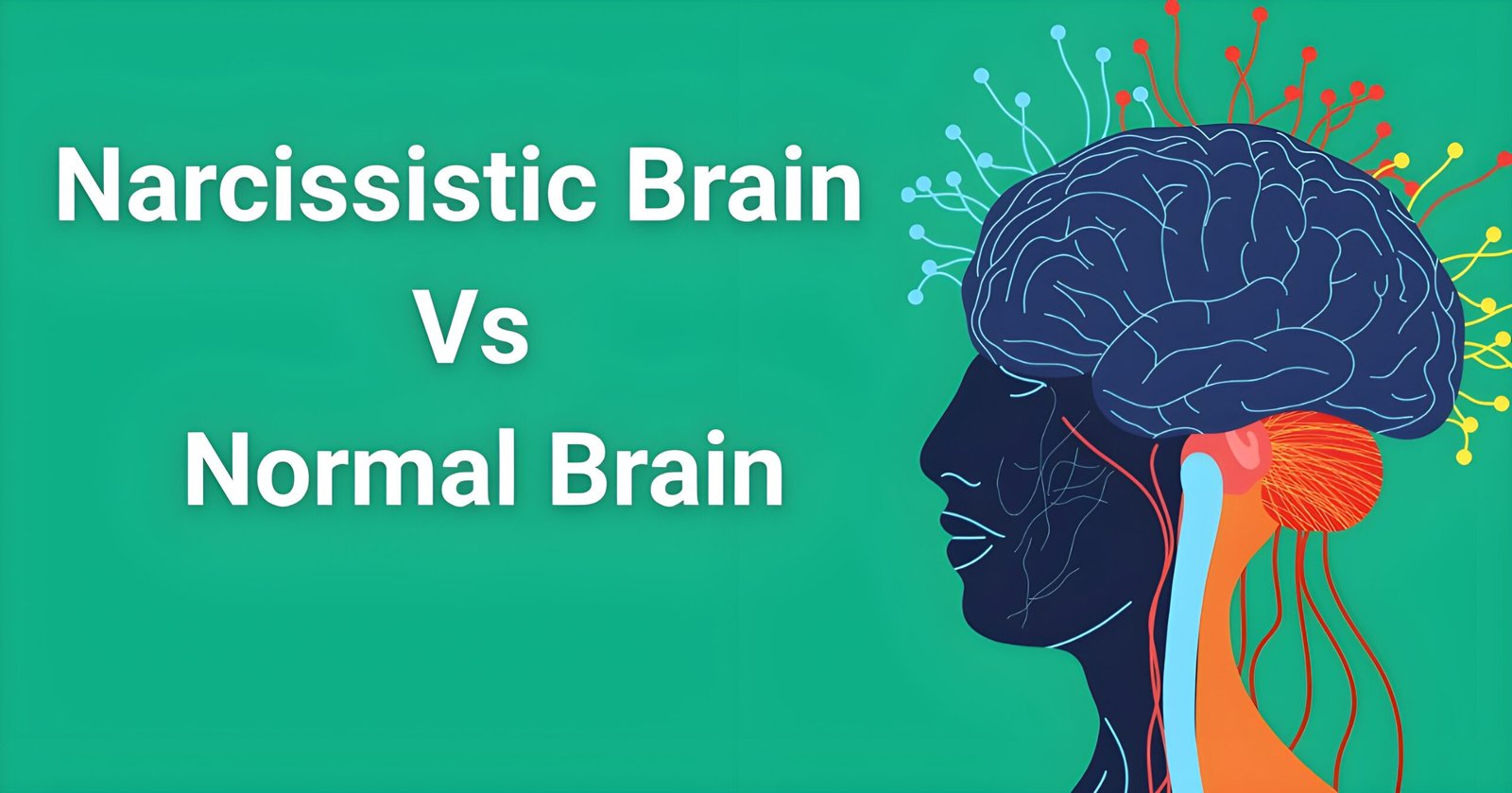Can narcissist change? If you’re desperately clinging to this question while hoping against hope that the person you love will finally become who you need them to be, you’re about to discover a truth so devastating it will completely shatter everything you believed about love, transformation, and your own worth. After helping over 10,000 survivors through my top-ranking Substack newsletter escape narcissistic abuse, I can tell you this answer will either set you free or break your heart all over again.
- The Devastating Reality: Why Narcissist Change Is Nearly Impossible
- The Neuroscience: Why Narcissist Change Is Structurally Difficult
- The Three Types of “Change” That Aren’t Real Change
- The Devastating Impact of False Hope
- The Therapy Trap: Why Traditional Treatment Fails
- The Rare Exceptions: When Change Might Be Possible
- The Manipulation of Change Promises
- The Cost of Waiting: What You Lose While Hoping
- The Acceptance Process: Moving Beyond False Hope
- Creating Your Life Without Waiting for Change
- Hope vs. False Hope: The Crucial Distinction
- Key Takeaways: Can Narcissist Change?
- Frequently Asked Questions
- The Bottom Line: Hope vs. Reality
The hope you’re carrying right now isn’t just hope—it’s a lifeline you’re using to survive in a relationship that’s slowly destroying your soul. You’ve probably seen glimpses of the person you fell in love with, moments that made you think “they can change,” and those moments are keeping you trapped in a cycle of pain and false promises.
As Fahim Chughtai, a Certified Narcissistic Abuse Specialist and founder of NarcissismExposed.com, I’ve witnessed thousands of survivors ask this exact question. The answer is more complex and more heartbreaking than most people realize.
The Devastating Reality: Why Narcissist Change Is Nearly Impossible
Can narcissist change fundamentally as people? The research is clear and heartbreaking: while anyone can theoretically change, narcissists face psychological, neurological, and motivational barriers that make genuine transformation extraordinarily unlikely. In my work helping survivors through my Personalized Narcissistic Abuse Clarity Reports, I’ve seen the devastating impact of false hope on people who waste years waiting for change that never comes.
This isn’t just about stubbornness or bad habits. When you’re asking “can narcissist change,” you’re dealing with someone who has a pervasive personality disorder that affects every aspect of how they think, feel, and relate to others.
Understanding this truth is crucial for your safety, sanity, and future happiness.
The Psychology Behind Narcissistic Resistance to Change
The question “can narcissist change” assumes they want to change, but here’s the first devastating reality: they genuinely don’t believe they need to change. Their entire psychological structure is built around the belief that they are superior, special, and that any problems in their relationships are caused by others.
The Grandiose Self-Image: They view themselves as perfect or near-perfect, making them incapable of seeing their own flaws or taking responsibility for their behavior.
Lack of Empathy: Without the ability to truly understand how their actions affect others, they have no internal motivation to change their behavior.
Cognitive Distortions: They rewrite reality to fit their narrative, making it impossible for them to accurately assess their need for change.
External Locus of Blame: They believe all relationship problems are caused by their partner’s inadequacies, not their own behavior.
The Neuroscience: Why Narcissist Change Is Structurally Difficult
Can narcissist change on a neurological level? Research in neuroscience shows that narcissists have structural and functional differences in their brains that make change extraordinarily difficult, though not theoretically impossible.
Brain Structure Differences
Prefrontal Cortex: Reduced volume in areas responsible for self-reflection, empathy, and moral reasoning makes it difficult for them to engage in the kind of introspection necessary for genuine change.
Amygdala: Abnormalities in the emotional processing center affect their ability to experience genuine remorse, guilt, or motivation to change.
Anterior Cingulate Cortex: Dysfunction in this area impairs their ability to monitor their own behavior and its impact on others.
Reward System: Their brains are wired to find narcissistic behaviors (manipulation, control, exploitation) neurologically rewarding, making change feel punishing rather than rewarding.
The Neuroplasticity Factor
While the brain can potentially change throughout life (neuroplasticity), narcissists face unique challenges:
- The changes required would be extensive and fundamental
- They lack the motivation to engage in the difficult work of rewiring their brains
- The process would require acknowledging flaws they’re psychologically incapable of seeing
- They would need to give up behaviors that provide them psychological benefits
The Three Types of “Change” That Aren’t Real Change
Can narcissist change in ways that might fool you? Yes, and understanding these false changes is crucial for your protection:
Type 1: Surface-Level Behavioral Adjustment
This involves temporary modifications to specific behaviors while the underlying personality remains unchanged.
What it looks like:
- Stopping obvious abusive behaviors temporarily
- Learning to say “sorry” without meaning it
- Modifying their communication style superficially
- Attending therapy or anger management classes
Why it’s not real change:
- The core personality structure remains intact
- Changes last only as long as external pressure continues
- They return to old patterns once they feel secure
- The underlying motivations and thought patterns don’t change
Type 2: Manipulation-Based “Transformation”
This involves adopting the appearance of change specifically to manipulate you into staying or returning.
What it looks like:
- Dramatic declarations of change and self-awareness
- Intense focus on your needs and desires temporarily
- Engaging in therapy or self-help with apparent enthusiasm
- Making grand gestures to “prove” their transformation
Why it’s not real change:
- The motivation is manipulation, not genuine growth
- They’re studying what you want to hear and mirroring it back
- The “change” is strategically designed to get you to drop your guard
- They’re simply becoming better at hiding their true nature
Type 3: Crisis-Driven Temporary Reform
This involves short-term behavioral changes in response to consequences or threats.
What it looks like:
- Sudden improvement when facing divorce or breakup
- Desperate attempts to change when losing something important
- Temporary compliance with treatment or therapy
- Brief periods of genuine-seeming remorse and effort
Why it’s not real change:
- The motivation is avoiding consequences, not genuine transformation
- Changes disappear once the immediate crisis passes
- They’re driven by fear rather than authentic desire to grow
- The underlying personality disorder remains untreated
If you’re struggling to identify exactly what type of narcissist you’re dealing with and which specific tactics they’re using against you, my Personalized Narcissistic Abuse Clarity Report provides a comprehensive analysis of your unique situation. In 48-72 hours, you’ll receive a detailed breakdown of their manipulation patterns, your emotional responses, and a custom roadmap for your next steps.
The Devastating Impact of False Hope
Will a narcissist will change beliefs keep you trapped? Unfortunately, yes. The hope that they can change often becomes the psychological prison that keeps survivors trapped in abusive relationships for years or even decades.
The Trauma Bond of Hope
Intermittent Reinforcement: Those brief moments when they seem to change create a powerful psychological addiction similar to gambling. Your brain becomes addicted to the hope of transformation.
Cognitive Dissonance: You have to reconcile the person you love with the person who hurts you, and the belief that they can change helps resolve this psychological conflict.
Sunk Cost Fallacy: The more time and energy you’ve invested in hoping they’ll change, the harder it becomes to accept that your investment was futile.
Identity Protection: Accepting that they can’t change means accepting that you’ve been fooled, which threatens your self-image as an intelligent, capable person.
The Psychological Torture of Waiting
Chronic Stress: Living in a state of hoping and waiting creates chronic stress that affects your physical and mental health.
Delayed Life Decisions: You put your own life on hold, waiting for them to change before making important decisions about your future.
Eroded Self-Worth: Each failed promise of change reinforces the belief that you’re not worth changing for.
Missed Opportunities: You miss chances for genuine happiness and healthy relationships while waiting for an impossible transformation.
Breaking free from trauma bonds requires more than willpower—it requires a systematic, day-by-day approach that rewires your brain’s addiction pathways. My 30-Day Trauma Bond Recovery Workbook provides the neurologically-based recovery system that treats trauma bonds like the addiction they actually are, with specific daily exercises designed to break the cycle permanently.
The Therapy Trap: Why Traditional Treatment Fails
Can narcissist change through therapy? This is one of the most painful questions survivors ask because therapy represents hope for transformation. The reality is that traditional therapy is often ineffective for narcissistic personality disorder, and sometimes makes things worse.
Why Therapy Fails Narcissists
Lack of Genuine Motivation: They usually enter therapy to appease their partner or avoid consequences, not because they genuinely want to change.
Manipulation of the Process: They often manipulate therapists just as they manipulate everyone else, presenting themselves as the victim or the one trying to save the relationship.
Resistance to Vulnerability: Effective therapy requires vulnerability and self-examination, which narcissists are psychologically incapable of sustaining.
Cognitive Distortions: They reframe therapy sessions to support their existing beliefs rather than challenging them.
Therapist Manipulation: They may charm therapists or use therapy sessions to gather ammunition against their partners.
The Couples Therapy Danger
Weaponization: They use couples therapy as another arena for manipulation and control.
Validation of Abuse: Therapists unfamiliar with narcissistic abuse may inadvertently validate the narcissist’s perspective.
Increased Danger: Couples therapy can escalate abuse as narcissists feel threatened by their partner’s attempts to set boundaries.
False Hope: The therapy setting can create false hope that change is possible when it’s not.
The Rare Exceptions: When Change Might Be Possible
Can narcissist change under any circumstances? While extremely rare, there are theoretical scenarios where limited change might be possible:
The Perfect Storm Requirements
For any genuine change to occur, ALL of these conditions would need to be met simultaneously:
Severe Consequences: They must face consequences so severe that their entire life structure collapses (loss of family, career, social status, etc.).
Rock Bottom Recognition: They must experience a genuine moment of self-awareness about their impact on others (extremely rare).
Intensive Specialized Treatment: They must engage in long-term, intensive therapy specifically designed for personality disorders with a therapist who understands narcissism.
Sustained Motivation: They must maintain motivation for change over years or decades, not just weeks or months.
Neurological Factors: They must have brain structure that allows for the kind of fundamental change required.
External Support: They must have ongoing accountability and support systems that maintain pressure for change.
The Statistical Reality
Research suggests that even with optimal conditions:
- Less than 1% of narcissists engage in genuine, lasting change
- Most improvements are temporary and surface-level
- The process would take many years or decades
- Relapse is extremely common
- The changes are often minimal compared to what partners hope for
The brutal truth: You cannot count on being the exception. Building your life around the hope that they’ll change is building your life on quicksand.**
The Manipulation of Change Promises
Can narcissist change promises be trusted? No, and understanding how they use change promises as manipulation tactics is crucial for your protection:
The Change Promise Cycle
Phase 1: Crisis Creation
- They push you to your breaking point
- You threaten to leave or set consequences
- They sense genuine danger to their control
Phase 2: Dramatic Promises
- Sudden acknowledgment of their problems
- Elaborate plans for change and self-improvement
- Emotional manipulation to convince you they’re different now
Phase 3: Temporary Compliance
- Brief period of improved behavior
- Just enough change to get you to stay
- Careful attention to what you want to see
Phase 4: Gradual Reversion
- Slow return to old patterns
- Testing your boundaries incrementally
- Blame-shifting when you notice the regression
Phase 5: Gaslighting About Change
- Denial that they promised to change
- Claiming you’re never satisfied
- Making you feel guilty for expecting consistency
The False Self-Awareness Manipulation
They may demonstrate what appears to be self-awareness by:
- Using therapy language to discuss their behavior
- Acknowledging specific actions that hurt you
- Explaining their childhood trauma or psychological issues
- Appearing to understand the impact of their behavior
The truth: This is often manipulation designed to make you believe they’re capable of change when they’re simply parroting what you want to hear.
The Cost of Waiting: What You Lose While Hoping
Can narcissist change beliefs cost you your life? While you’re waiting for them to change, here’s what you’re actually losing:
Time and Opportunities
Years of Your Life: Every year you wait is a year you could have been building a healthy, happy life.
Career Advancement: Their chaos and drama often interfere with your professional growth.
Relationship Opportunities: You miss chances for genuine love and connection with emotionally available partners.
Personal Growth: Your own development stagnates while you focus on their potential for change.
Mental and Physical Health
Chronic Stress: The constant hope and disappointment cycle creates chronic stress that affects your health.
Depression and Anxiety: Living with false hope often leads to depression and anxiety disorders.
Physical Symptoms: Stress manifests as physical symptoms including insomnia, headaches, and digestive issues.
Cognitive Decline: The chronic stress of hoping they’ll change can affect your memory and decision-making abilities.
Self-Worth and Identity
Eroded Confidence: Each failed promise of change reinforces feelings of inadequacy.
Lost Identity: You become so focused on their potential that you lose sight of your own needs and desires.
Damaged Intuition: Constantly hoping against evidence erodes your ability to trust your own perceptions.
Compromised Values: You compromise your own values and boundaries while waiting for them to change.
For those who can’t leave immediately due to financial constraints, children, or other circumstances, my “How to Survive When You Can’t Leave Yet” workbook provides daily survival strategies that give you peace and protection while you’re still in the situation. This isn’t about enduring—it’s about thriving strategically until you can safely exit.
The Acceptance Process: Moving Beyond False Hope
Can narcissist change questions be replaced with self-focused ones? Yes, and this shift is crucial for your healing and freedom:
From “Can they change?” to “Can I change my life?”
Shift 1: From External to Internal Focus
- Instead of “Can they change?” ask “How can I change my response to them?”
- Focus on what you can control rather than what you can’t
Shift 2: From Future Hope to Present Reality
- Instead of “Maybe they’ll change tomorrow” ask “What is my reality today?”
- Make decisions based on current behavior, not future promises
Shift 3: From Their Potential to Your Needs
- Instead of “What could they become?” ask “What do I need to be happy?”
- Prioritize your actual needs over their theoretical potential
Shift 4: From Waiting to Acting
- Instead of “When will they change?” ask “What can I do now?”
- Take action based on reality rather than waiting for change
The Grief Process of Letting Go
Denial: “They can change, I just need to be more patient.”
Anger: “How could they make me believe they would change?”
Bargaining: “If I just do X, maybe they’ll finally change.”
Depression: “I wasted so much time hoping they would change.”
Acceptance: “They are who they are, and I need to make decisions based on that reality.”
Creating Your Life Without Waiting for Change
Can narcissist change become irrelevant to your happiness? Absolutely, and this is where your real power lies:
Building Your Independent Life
Personal Goals: Develop goals that don’t depend on their behavior or changes.
Support Network: Build relationships with people who accept you as you are right now.
Financial Independence: Create financial security that doesn’t depend on their cooperation.
Emotional Autonomy: Develop the ability to regulate your emotions without their approval or change.
The Freedom of Acceptance
Energy Redirection: The energy you spent hoping they’d change can be redirected to your own growth and happiness.
Reduced Anxiety: Accepting that they won’t change eliminates the constant anxiety of waiting and hoping.
Authentic Relationships: You can form relationships based on reality rather than potential.
Personal Peace: Accepting what you cannot control brings a profound sense of peace.
Hope vs. False Hope: The Crucial Distinction
Can narcissist change hope be transformed into healthy hope? Yes, but it requires redirecting your hope toward realistic possibilities:
False Hope (Destructive)
- Hoping they will fundamentally change their personality
- Believing love can transform them
- Waiting for them to become who you need them to be
- Hoping they will suddenly develop empathy
Healthy Hope (Empowering)
- Hoping for your own healing and growth
- Believing you can create a happy life regardless of their behavior
- Hoping to form healthy relationships with emotionally available people
- Believing you deserve genuine love and respect
The Recovery Path
Phase 1: Awareness
- Recognizing that your hope for their change is keeping you trapped
- Understanding the psychological reasons why change is unlikely
- Accepting the reality of their behavior patterns
Phase 2: Grief
- Mourning the person you thought they were
- Grieving the relationship you hoped you could have
- Processing the loss of your dreams and expectations
Phase 3: Redirection
- Focusing hope on your own healing and growth
- Building a life that doesn’t depend on their change
- Developing relationships based on reality rather than potential
Phase 4: Empowerment
- Making decisions based on who they are, not who they could be
- Creating boundaries that protect your well-being
- Building a life filled with genuine love and respect
Key Takeaways: Can Narcissist Change?
- Can narcissist change fundamentally? Rarely, and not in the way you’re hoping
- The barriers to change are psychological, neurological, and motivational
- False hope often becomes the prison that keeps you trapped
- Their promises of change are usually manipulation tactics
- Your happiness should not depend on their potential for transformation
- Accepting reality is the first step toward freedom and genuine happiness
- You can create a beautiful life regardless of whether they change
Frequently Asked Questions
Yes, narcissists can change, but it requires their willingness to recognize harmful patterns and commit to therapy. Change is possible with the right commitment and professional support, though the process is often challenging and gradual. However, around 40% of NPD sufferers who seek treatment end up dropping out of therapy.
Studies show a 63-64% dropout rate from psychotherapy for patients with narcissistic personality disorder. Treatment success rates are low, estimated at only 2-3% for individuals due to multiple layers of denial and resistance to change. Progress is typically slow and gradual when it does occur.
Most narcissists don’t voluntarily seek therapy because they typically can’t recognize the disorder in themselves, and this lack of insight is often a defining feature of NPD. Most clients with NPD do not enter therapy to reflect or change but may seek help due to external pressures or relationship threats.
No, love from another person cannot change a person with NPD. Only the individual with NPD can make that choice. Love alone cannot guarantee change in a narcissist, though support from a partner can create motivation for personal growth. The narcissist must actively work on their issues for lasting change.
Signs include taking responsibility for their actions, listening to concerns non-defensively, making sincere amends for mistakes, and demonstrating better emotional regulation consistently over time. Look for long-term efforts for growth and progression, not just short-term good behavior.
The Bottom Line: Hope vs. Reality
The statistics don’t lie, and they paint a sobering picture. With dropout rates exceeding 60% and success rates hovering at a dismal 2-3%, banking on a narcissist’s transformation is like betting your life savings on a lottery ticket. Yes, change is theoretically possible—but it requires a level of self-awareness, commitment, and sustained effort that most narcissists simply cannot or will not provide.
If you’re holding onto hope that the narcissist in your life will suddenly develop empathy, take responsibility, or genuinely change, you’re likely setting yourself up for years of disappointment and continued abuse. The most powerful change you can make is focusing on what you can control: your own boundaries, your healing journey, and your decision to stop waiting for someone else’s transformation to begin your own life.
Remember, you deserve relationships built on mutual respect, not the exhausting cycle of hoping someone will finally see your worth. Sometimes the kindest thing you can do—for both yourself and the narcissist—is to stop enabling their behavior and start prioritizing your own emotional well-being.






